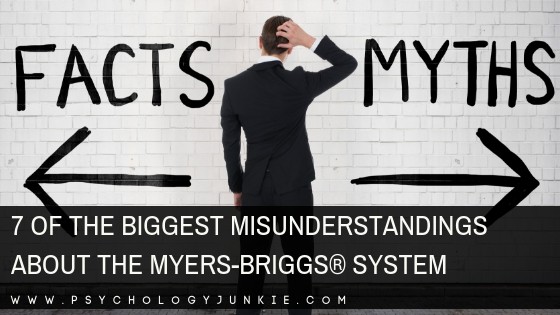The Most to Least Assertive Myers-Briggs® Personality Types, Ranked
Everyone has the ability to be assertive, confident, and straightforward. But there are those who speak their mind so quickly and boldly that they stand out and make people stop and look. Do certain types naturally radiate this assertiveness while others are more soft-spoken? That’s what we’ll be diving into in today’s article!
But before we get into the details, let’s get clear on definitions.

What does it mean to be assertive?
Assertiveness is defined as the ability to confidently express one’s thoughts, feelings, and needs in a direct way. It’s important to note that being assertive does not mean being aggressive or rude. Rather, it’s about standing up for oneself in a respectful manner.
Merriam-Webster defines assertive as “disposed to or characterized by bold or confident statements and behavior.”
Cambridge dictionary defines assertive as “the quality of being confident and not frightened to say what you want or believe”
Vocabulary.com states, “If you are upfront about what you want and bold in devising a plan that helps you get it, you could be described as assertive, meaning you act with authority and confidence.”
The truth is, anyone can learn to be assertive. Anyone can develop this skill regardless of their personality type. but certain types tend to embody assertiveness without even having to try. Let’s take a look at those types now!
Why Are Extroverts Listed as the Most Assertive?
Just to preemptively respond to questions I foresee coming in the future, there’s a reason extroverts rank highest (in many cases) in assertiveness. According to the Big 5 theory of personality, assertiveness is one of the core signs of extroversion. Assertiveness is often associated with extroversion, partially because extroverts focus on the external world first so they tend to speak their mind in a more forthright and rapid manner.
Introverts, on the other hand, are careful about thinking things through before speaking and are more reflective and cautious. While they can indeed be assertive, they may seem a little more restrained because they need time to contemplate first. Neither is better than the other!
Extroverts also scored much higher on assertiveness in relation to the Dominance scale of the CPI™ tool, according to the MBTI® Manual. That said, I’ve known plenty of assertive introverts, but they typically need a bit more time to process before they speak their minds directly.
Not sure what your personality type is? Take our new personality questionnaire here. Or you can take the official Myers-Briggs Type Indicator (MBTI®) here.
The Most to Least Assertive Myers-Briggs® Personality Types, Ranked
#1 – ENTJ
According to the MBTI® Manual, ENTJs ranked highly on the Dominance scale of the CPI™ tool. The term “Dominance” in this context refers to assertiveness, confidence, and task-orientation. This tool, known as the California Psychological Inventory, provides insights into personality traits.
Anyone who’s met an ENTJ in real life could probably attest to their confidence, particularly when it comes to articulating a vision, delegating tasks, or stating directly what they need to see happen. These types hate beating around the bush, dislike passive-aggressive behavior, and are unafraid to express their opinion clearly. In fact, clarity is hugely important to ENTJs. As Extraverted Thinking types, they look for clarity of mind, clarity of direction, and clarity in how their environment is organized. Anything that isn’t clear could hamper their progress and get in the way of their long-term goals. As Aristotle, a rumored ENTJ, famously said, “How many a dispute could have been deflated into a single paragraph if the disputants had dared to define their terms!”
Find out more about ENTJs: Are ENTJs Smart? A Look at the Strategic Visionary
#2 – ESTJ
ESTJs also ranked highly on the Dominance scale of the CPI™ tool. Straight-talking and organized, these types have no patience for tip-toeing around the truth. Like their cousin ENTJs, ESTJs are pragmatic and direct in their problem solving approach. They have no tolerance for procrastination and quickly grow tired of people who come up with excuses, show up late, or hesitate to speak their mind. Their blunt, straightforward manner can be off-putting to more sensitive types, but it usually isn’t coming from a mean-spirited place. ESTJs just want to get the job done or reach a decision as efficiently and expediently as possible. Reaching an objective or goal as quickly as possible is one of the ways they support their family, friends, or colleagues.
Find out more about ESTJs: 24 Signs That You’re an ESTJ, the Captain Personality Type
#3 – ESTP
Sharp-shooting and realistic, ESTPs also have a knack for being assertive. They believe if you can say something in ten words as opposed to eleven, you should absolutely do it. Yes, they are extroverts with a talent for storytelling and can be quite talkative, but when they need or want something they’ll get straight to the point and won’t waste anyone’s time. This assertiveness shows up in their work style, as well. They take charge of the team, act on the fly, respond quickly to chaos, and have no fear of taking on new challenges. Like other assertive types, ESTPs move with purpose, momentum, and speed, hoping to get to a decision quickly.
Find out more about ESTPs: Your ESTP Cognitive Function Guide
#4 – ENFJ
While ENFJs might seem warm and fuzzy on the outside, they can be surprisingly assertive when needed. In fact, psychologist Linda Berens lists ENFJs as the only Feeling In-Charge™ personality type. In-Charge™ types value assertiveness, productivity, and forward momentum towards a goal. Lack of directness can hamper forward movement, so ENFJs can grow impatient when people are waffling on a decision or not speaking their mind directly.
ENFJs are also excellent at reading non-verbal cues and knowing exactly how to approach a situation that requires a direct approach. They may not be as task-oriented as ENTJs or ESTJs, but their ability to read people’s emotions and respond in a caring yet confident manner is remarkable. They are also great communicators and have an incredible ability to motivate and inspire others to reach their goals and use their talents.
Find out more about ENFJs: 12 Amazing Fictional ENFJs
#5 – INTJ
INTJs need time to reflect and process, but when they’ve decided on a course of action they are forthcoming and decisive. Their main decision-making function is Extraverted Thinking, which hates ambiguity and is constantly looking for ways to bring order to chaos. When INTJs have a plan, they are not afraid to put it into practice, even if it means challenging the status quo or delegating the right people to the right task. They don’t move forward without weighing all of the options and creating an intelligent strategy first, but once they’ve reached a conclusion they are confident and clear with what they believe and how they think things should be done.
Find out more about INTJs: The Underrated Kindness of the INTJ Personality Type
#6 – ISTJ
ISTJs may be quiet and reserved, but they can be surprisingly assertive when they’ve got a job to do or projects are being mishandled. They are known for respecting authority, yet also have the confidence to question it when necessary. As Thinking types, ISTJs use data and facts to support their arguments, so they often come across as logical and sensible in their ideas. They value truth over likability and will often speak their minds even when it’s unpopular. They don’t just rely on logic, however; ISTJs also use their detailed history of life experience to back up their arguments, recalling what has worked in the past to make sense of the present. There’s a calm, sensible confidence in the way an ISTJ types speaks that commands respect.
Find out more about ISTJs: The ISTJ Leader
#7 – ESFP
Excitable and adventurous, ESFPs live life boldly and with a sense of curiosity and fun. They have a taste for impactful experiences and enjoy taking life by the horns. Yet behind their good-natured energy is an assertive, outspoken streak. ESFPs are known for having a strong sense of what they want and aren’t afraid to go after it. They are also known for championing the underdogs and standing up for what they believe in. Many ESFPs aren’t afraid to call out injustice, bullying, or social disparities. Their bubbly exterior often masks a confident conviction and a no-nonsense attitude.
Discover more about ESFPs: 7 Ways That ESFPs Make an Impact
#8 – ENTP
ENTPs have a reputation for being intellectually curious and confident in their ideas. They tend to be quick-witted and good-humored, with an ability to help people open up and share their insights. They love to bounce ideas off people, share their goals, and experiment with new approaches. When it comes to speaking their mind, ENTPs are comfortable expressing themselves directly – even if what they have to say is unconventional. They don’t feel the need to mince words or sugar-coat anything, and often feel more than equipped to debate any topic. As NT types, they value directness, logic, truth, and competence. When it comes to an argument, these types are more than happy to take the driver’s seat and defend their point of view.
Discover more about ENTPs: 24 Signs That You’re an ENTP, the Trailblazer Personality Type
#9 – ISTP
Quiet but direct, ISTPs don’t beat around the bush when it comes to expressing their opinions. As Thinking types, they tend to be matter-of-fact and often use blunt language to convey their points of view. They have a gift for analyzing a situation, adapting to unforeseen changes, and solving problems on the fly.
ISTPs also value autonomy and quiet more than many other personality types. They don’t like to put their nose in everyone else’s business, and often avoid confrontation unless absolutely necessary (why waste the energy?). In general, they may not seem as assertive as many other types simply because they tend to keep more to themselves. However, when people are being incompetent or discarding truth in favor of their own agendas, ISTPs can be surprisingly bold in voicing their dissent.
Find out more about ISTPs: 10 Things You Should Never Say to an ISTP
#10 – ENFP
Enthusiastic and inspiring, ENFPs enjoy getting people involved in decision making and finding consensus in a group. ENFPs can be surprisingly forthcoming in defense of their values and the ideas that drive their interest. Inquisitive and creative, they aren’t afraid to take risks or speak their truth even in uncomfortable situations. They’re quick to speak out against unfairness and are often the first to champion causes they believe in. They’re also incredibly independent, so if something stands in their way or contradicts a value of theirs, ENFPs don’t back down easily.
Discover more about ENFPs: How to Communicate Effectively with an ENFP
#11 – ESFJ
Conscientious and warm, ESFJs are the ultimate friendly hosts. They’re often eager to please and put the well-being of other people first. While they may not be as vocal or direct as some of their more assertive counterparts, ESFJs have a knack for getting things done and making sure everyone is happy while doing it.
ESFJs also have very strong values and ideas about proper behavior. They don’t shy away from expressing their opinions and will quickly get people in line if they are acting in a way that defies their values or creates friction for others. In the words of Colin Powell, a rumored ESFJ, “Leadership is all about human connections. It’s all about conveying to the followers that you believe in them … and that we are all in this together.”
#12 – INFJ
While INFJs may not possess an overtly loud and showy demeanor, they are individuals with vision and they don’t mind backing that up with assertive action. As idealists, they have a yearning to bring their ideals to reality. This means that they can be surprisingly assertive at times, particularly in defense of their values or when creating a long-term plan.
Thanks to their deeply intuitive nature, INFJs often possess a keen awareness of patterns and trajectories that others may overlook. Whenever they sense that something is amiss or someone is struggling, they gently voice their opinions and provide guidance to steer people back onto a better path. Serving as calm and compassionate mentors, they frequently pursue careers in counseling or religion, leveraging their empathic strengths to offer invaluable assistance to others. As rumored INFJ Mahatma Gandhi stated, “In a gentle way, you can shake the world.
Find out more about INFJs: 10 Things That Terrify INFJs
#13 – ISFP
ISFPs aren’t naturally loud or boisterous people, but they have a strong sense of justice and what’s right and wrong. They tend to keep to themselves most of the time, but if someone is being treated unfairly, ISFPs won’t hesitate to step up and call out the injustice. They often appear laid-back and quiet, but if pushed, an ISFP will readily defend their values with surprising vigor.
ISFPs also have a strong sense of adventure and individuality; they’re not afraid to march to the beat of their own drum or try new things, even if there is some risk involved. This can lead to some bold and daring behavior, especially if it’s something they’re passionate about. For the ISFP, life is about living in alignment with deeply-held values and experiencing the world in all its intensity, emotion, and beauty. As rumored ISFP Thich Nhat Hanh said, “I promise myself that I will enjoy every minute of the day that is given me to live.”
Find out more about ISFPs: 24 Signs That You’re an ISFP, the Virtuoso Personality Type
#14 – INTP
Quiet and private, INTPs don’t tend to be the most outspoken people in the room. But if asked for their thoughts or opinions on a topic, they won’t hesitate to offer a carefully thought-out and logical response. INTPs are highly analytical, and prefer to approach problems by weighing leverage points and grasping the underlying principles. They check for logical consistency, and don’t mind pointing out inconsistencies or errors in reasoning to back up their position. This can make them excellent debaters, although they don’t naturally seek out conflict.
INTPs also aren’t afraid to challenge traditional values and push boundaries when it comes to solving problems. They often feel more comfortable questioning the status quo and exploring different possibilities than sticking to established methods. And while they may not be as vocal as some other types, INTPs can be quite assertive in expressing their ideas and defending them. As INTP physicist Marie Curie said, “Nothing in life is to be feared, it is only to be understood.
Find out more about INTPs: 24 Signs That You’re an INTP, the Prodigy Personality Type
#15 – INFP
Imaginative and compassionate, INFPs strive for a live of creativity and integrity. Loyal advocates and champions, they strive to make a difference in the world and often fight for underrepresented or unheard groups. INFPs may not be loud or pushy, but they have a strong sense of right and wrong that they are unafraid to defend. In fact, they often go out of their way to speak up for the voiceless or make sure people are being treated fairly. As INFP author Antoine de-Saint Exupery said, “One sees well only with the heart. What is essential is invisible to the eye.”
INFPs also don’t shy away from expressing their creative ideas and sharing them with others. They may struggle with self-doubt or perfectionism, but they’re still capable of producing insightful work that shines a light on issues others have overlooked.
Find out more about INFPs: A Look at the INFP Leader
#16 – ISFJ
Gentle and unassuming, ISFJs may not be the most talkative or assertive people in the room. However, that doesn’t mean they don’t have an opinion. When there’s a problem that needs to be solved, they like to offer solutions and alternatives and gently guide people towards a harmonious solution. However, they often don’t like to draw attention to themselves and prefer instead to focus behind the scenes. They have a knack for seeing opportunities to lend a helping hand or pick up the slack when someone else is in need. They may not be particularly outspoken, but they won’t hesitate to step in and defend their values if necessary.
ISFJs also tend to be incredibly loyal and reliable. They don’t shirk from responsibility, and are often willing to go above and beyond to ensure the success of any project or cause they care about. They may not be vocally assertive, but their presence is still felt in a powerful way.
Find out more about ISFJs: A Look at the ISFJ Leader
What Are Your Thoughts?
Now that you know my personal rankings of the 16 Myers-Briggs personality types from most to least assertive, what are your thoughts? Do these rankings align with your own observations and experiences? Let us know in the comments below!
Explore your personality type further with our collection of eBooks: “Discovering You: Unlocking the Power of Personality Type,” “The INFJ – Understanding the Mystic,” “The INTJ – Understanding the Strategist,” and “The INFP – Understanding the Dreamer.“
You can also stay connected with me via Facebook, Instagram, or Twitter!
References:
MBTI® Manual: A Guide to the Development and Use of the Myers-Briggs Type Indicator® Instrument by Isabel Briggs Myers, Mary H. McCaulley, Naomi L. Quenk, and Allen L. Hammer (2009, CPP)
Understanding Yourself and Others: An Introduction to Interaction Styles 2.0 by Linda V. Berens (InterStrength, 2008)
Big 5 Personality Traits: What Are the Big 5 Personality Traits?















I’m surprised to see intj ranked so high in assertiveness. But maybe that’s because i’m not the stereotypical intj. I think i’m low in extraverted thinking. My top functions are all introverted (yes, I know no official stack matches what I am), and my introversion makes me lack assertiveness. I don’t like being in a position of authority, but I’d like to call the shots behind the scenes. I say nothing in real life, but I’ll argue with people online.
Interesting thoughts, thank you so much for sharing Susan